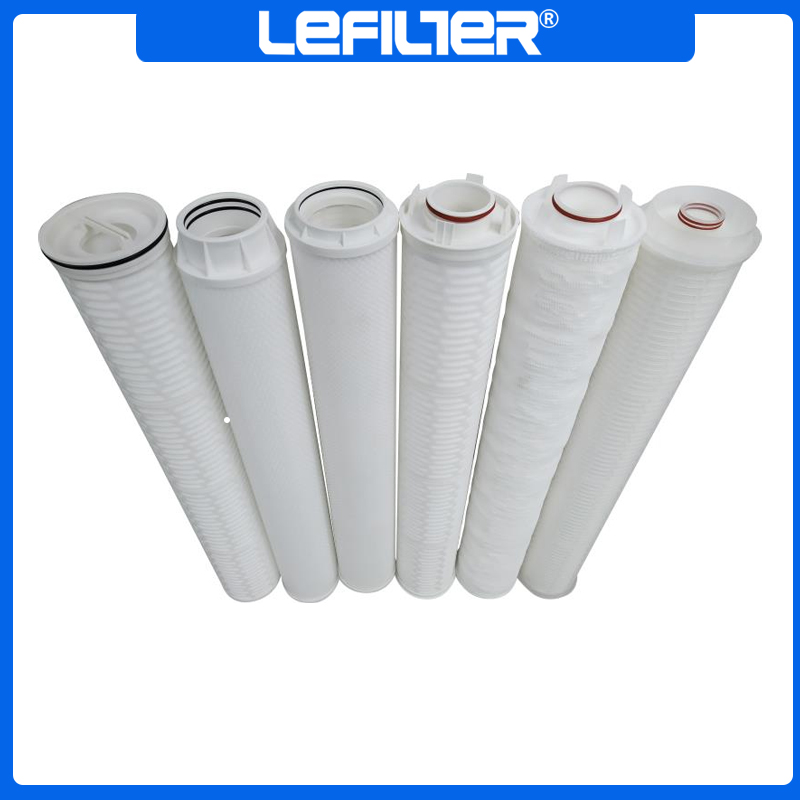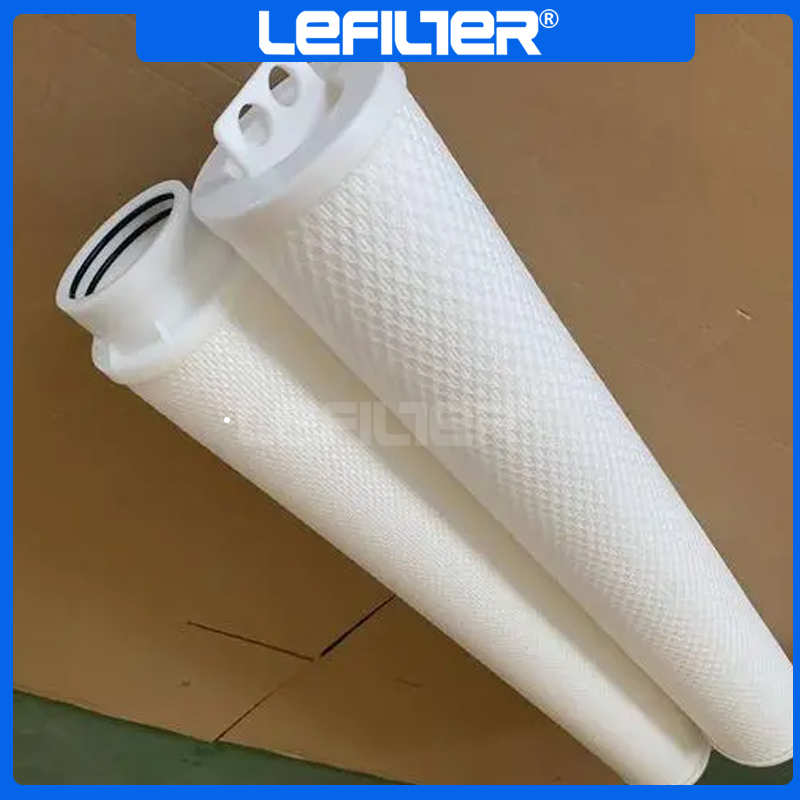Cartridge Filter Housing in the Food and Beverage Industry
DATE:2024-10-19 Number of views: 1 Source:dongwenhui
In the food and beverage industry, maintaining product purity, safety, and quality is paramount. Whether producing bottled water, juices, beer, or soft drinks, filtration systems play a vital role in ensuring that products are free of contaminants and meet strict regulatory standards. Cartridge filter housings, in particular, are indispensable in this field, offering efficient and reliable filtration solutions for a variety of applications. We will explore the crucial role of cartridge filter housings in the food and beverage industry, focusing on their applications, benefits, and the importance of filtration in maintaining food safety.

The Role of Cartridge Filter Housing in Water Purification
Water is a primary ingredient in many food and beverage products, from soft drinks to beer, and ensuring its purity is critical to maintaining product quality. Cartridge filter housings, which hold replaceable filter cartridges, are commonly used in water purification systems to remove particles, microorganisms, and other contaminants from water before it is used in production.
In water treatment, different types of filter cartridges, such as sediment filters, activated carbon filters, and microfiltration cartridges, can be used depending on the specific contaminants that need to be removed. These filters are designed to eliminate everything from dirt and sediments to chlorine, bacteria, and other harmful microorganisms, ensuring that the water used in food and beverage production is safe and clean.

Juice Filtration: Ensuring Purity and Quality
The production of fruit juices requires careful filtration to remove pulp, sediments, and microorganisms without compromising the flavor or nutritional value of the product. Cartridge filter housings play a key role in this process by providing a platform for fine filtration. The type of filter used often depends on the desired clarity of the juice, but in most cases, microfiltration or ultrafiltration cartridges are employed to achieve the desired level of purity.
These filtration systems are crucial for maintaining juice quality, extending shelf life, and preventing spoilage. Additionally, they help remove any unwanted residues or contaminants that may have entered during processing, packaging, or handling, ensuring that the final product meets health and safety standards.
Beer Filtration: Achieving the Perfect Brew
Beer production is a complex process that involves multiple stages of filtration, and cartridge filter housings are essential for ensuring that beer remains free of unwanted particles and microorganisms. The filtration process typically begins with the removal of larger particles, such as hops, grains, and yeast, using coarser filters. After this, finer filters are employed to polish the beer, removing any remaining particles that could affect the taste, clarity, or stability of the product.
Sterile filtration is also important in beer production, particularly for non-pasteurized beers, as it helps to remove spoilage organisms without the need for heat treatment. By using specialized filter cartridges, brewers can ensure that their beer remains safe to consume while maintaining the desired flavor profile.

Soft Drink Filtration: Ensuring Safety and Taste
Soft drink production involves the filtration of both water and syrup mixtures to ensure that the final product is free from impurities and meets quality standards. Cartridge filter housings are used to hold a range of filter cartridges, from coarse filters that remove particles and sediments to fine filters that trap microorganisms and contaminants.
Filtration is particularly important in preventing microbial contamination, which can spoil the taste and safety of soft drinks. By using advanced filtration systems, manufacturers can ensure that their products remain fresh, clear, and consistent in flavor, while also meeting the strict safety regulations imposed on the beverage industry.
Contaminant Removal and Microbial Control
One of the primary concerns in the food and beverage industry is microbial contamination, which can lead to spoilage, reduced shelf life, and potential health risks for consumers. Cartridge filter housings, combined with high-quality filter cartridges, offer an effective means of controlling microbial growth in beverages and food production.
Filtration systems are typically designed to target specific microorganisms, such as bacteria, yeast, and mold, which are common contaminants in beverages. By using filter cartridges with pore sizes as small as 0.2 microns, manufacturers can achieve sterile filtration, effectively removing these harmful microorganisms and ensuring that their products are safe for consumption.

Compliance with Food Safety Standards
The food and beverage industry is subject to stringent regulations aimed at ensuring product safety and consumer protection. Filtration plays a vital role in helping manufacturers meet these regulatory requirements by providing a reliable method of contaminant removal. Cartridge filter housings and their associated cartridges are often tested and validated to meet international standards, including those set by organizations such as the Food and Drug Administration (FDA) and the European Food Safety Authority (EFSA).
By implementing robust filtration systems, manufacturers can not only ensure product safety but also maintain compliance with food safety regulations, reducing the risk of product recalls and ensuring consumer confidence in their products.
Maintenance and Efficiency
Cartridge filter housings are designed to be efficient and easy to maintain, with replaceable cartridges that can be swapped out when they become clogged or reach the end of their lifespan. Proper maintenance of these systems is crucial to ensuring their continued effectiveness, as clogged or damaged filters can reduce filtration efficiency and increase the risk of contamination.
By regularly inspecting and replacing filter cartridges, manufacturers can maintain optimal filtration performance, ensuring that their products remain pure, safe, and of high quality.

The Benefits of Cartridge Filter Housing in Food and Beverage Production
Improved Product Quality: Cartridge filter housings help remove unwanted particles, sediments, and microorganisms from food and beverage products, improving overall product quality.
Enhanced Food Safety: Filtration systems reduce the risk of microbial contamination, ensuring that products are safe for consumers.
Compliance with Regulations: Cartridge filters help manufacturers meet strict regulatory requirements for food and beverage production.
Cost-Effective: Cartridge filter housings are designed for easy maintenance and replacement, reducing operational costs and minimizing downtime.
Conclusion
Cartridge filter housings are a critical component of food and beverage production, providing reliable filtration solutions for water purification, juice, beer, and soft drink manufacturing. By removing contaminants and controlling microbial growth, these systems ensure that products remain safe, high-quality, and compliant with industry regulations. As food safety standards continue to evolve, filtration technology will remain an essential part of ensuring the integrity and safety of food and beverage products.
FAQ
What is a cartridge filter housing used for in the food and beverage industry?
Cartridge filter housings hold replaceable filter cartridges that remove contaminants from water, juices, beer, and soft drinks during production.How does cartridge filtration improve the quality of beverages?
It removes particles, sediments, and microorganisms that can affect the taste, clarity, and safety of beverages.What types of filter cartridges are used in water purification?
Sediment filters, activated carbon filters, and microfiltration cartridges are commonly used for removing particles and contaminants from water.Why is sterile filtration important in beer production?
Sterile filtration helps remove spoilage organisms from non-pasteurized beer, ensuring product stability and safety without altering the flavor.How does filtration prevent microbial contamination in soft drinks?
Filtration systems with fine-pore filters trap microorganisms, ensuring that soft drinks remain free from microbial contamination.Are filter cartridges in food production reusable?
No, most filter cartridges are designed for single use and need to be replaced regularly to maintain filtration efficiency.What are the regulatory standards for filtration in the food and beverage industry?
Filtration systems must meet food safety standards set by organizations like the FDA and EFSA to ensure the safety and quality of products.How often should filter cartridges be replaced?
Filter cartridges should be replaced based on pressure drop measurements or after a set number of operating hours to ensure optimal filtration performance.
Industry Solutions
Pure Water /Ultra Pure Water System


